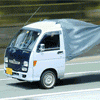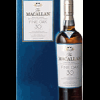Search the Community
Showing results for tags 'prices'.
-
A game changer?? HDB policy to drag private pries?
-
Realise a trend now in dealers' pricing. For example, 2 almost same specs n year bmw 320, 100% loan, dealer asking 190k. PPSL selling 170k if DP 50%. Wearnes Pre Own div seems to be dropping abt 20k per car as compared to ah beng dealers who are still either holding or upping prices.
- 11 replies
-
- Difference
- Used
-
(and 6 more)
Tagged with:
-
Based on the crude oil prices. Its hitting USD90 already.... Btw, oil prices is impervious to exchange rates......
-
wah i think i stuck in well.... all those buy new car i will salute! Altis at 140k, Rav4 at 210k, Camry 180k... etc etc.... sibeh huat sia......
-
just happened to find out this portal for car export from spore... http://www.singaporemotors.net/about.php can search for specifc car models and even can see chasiss nos.... you will find out how cheap cars really are when they are exported out of spore..... 2003 civic is only selling for $12k - $14k 2004 getz only selling for $6k-7k now we all know we all had been fooled into paying so much when we first buy our cars..... how much is the profit margin for these export dealers? any 1 knows how to calculate?
-
knn... oil price drop until like that.... why didnt I see petrol price drop also?? $87 is like 2006 oil price level??? At that time, how much is the petrol?? follow the link here: http://www.csmonitor.com/Business/Latest-N...onomic-warnings
-
looks like there's another round of increase again... argh... will the petrol prices ever drop again?
-
From ST Forum: http://www.straitstimes.com/STForum/Story/...ory_800580.html Oil prices down, but pump prices still high Published on May 19, 2012 OIL prices have dropped by an average of 10 per cent since April, but the prices of petrol and diesel, as well as liquefied petroleum gas (LPG) cylinders for home use, have not seen a similar decrease. Meanwhile, major oil companies are posting multibillion-dollar profits for their first quarter this year. I wonder why the Consumers Association of Singapore has been silent about the development. Interestingly, in July 2008 when the Brent crude price was US$147 per barrel, our pump price for Mogas 95 unleaded was $2.236 per litre before discount. On May 8 this year, the Brent crude price was down to US$111.24 per barrel, while our pump price for Mogas 95 unleaded was $2.17 per litre before discount. What's more, over the past four years, the Singapore dollar has strengthened against the US dollar, from 1.55 to 1.25. So I am baffled as to why consumers here are paying so much more for their LPG, petrol and diesel. David Goh
-
Bros, maybe time to think of second- or third-hand rides... From ST Forum: http://www.straitstimes.com/STForum/Story/...ory_806066.html COE prices are unlikely to fall: Experts Published on Jun 2, 2012 WE NOTE that consumers in general are expecting a decline in premiums of certificates of entitlement (COEs) following the Land Transport Authority's announcement that it will pull back on its drive to crimp the growth of the vehicle population here ('Government answers call to ease COE crunch'; Thursday). In our analysis based on current deregistration numbers, despite the recent measures, the Category A quota - for cars of 1,600cc and below, and taxis - is expected to fall by some 40 per cent from current levels. It is unlikely the COE premium will decline for this category. Tan Wah Sern Executive Secretary Motor Traders Association -------------------------------------------------------------------------------- WHILE the revised COE quantum formula averts a worse situation, it does not address the system's boom and bust cycles. In view of the uncertain number of deregistrations until the end of this month, an objective way to assess the revised formula is to apply it to the present February-to-July allocation window. With annual growth allowance raised to 1 per cent in lieu of 0.5 per cent from August this year, and the temporary suspension of negative adjustments due to past oversupplies, the average number of COEs across all categories for each bi-weekly auction would be about 1,786 compared to the current 1,846. Some 627, 331 and 151 COEs would be available in Categories A (for cars with engine size 1,600cc and below and taxis), B (for cars with engine size above 1,600cc) and E (unrestricted) respectively. These numbers account for the lower provision of COEs in Category E from August. The average number of COEs in the forthcoming allocation window between August and next January will most likely be below 1,786 per bi-weekly auction due to fewer deregistrations this year compared to the second half of last year. Thus, the COE premiums can be expected to stay at their high levels. Singfat Chu Associate Professor of Analytics NUS Business School
-
This is a serious question. Many people say that COE prices will drop in 3 to 5 years time. I know this is when many cars will reach their 10 years shelf life and be scraped. And it will free up more COE. So which means the COE quote will be higher. I know this for a fact but i dont understand. ___________________________________ Wouldnt the car owners who scraped their cars in 3 to 5 years time want to buy a replacement car? So what if there are more COE? There will be more car buyers too. Increased bidding will compensate for the increase in COE quota. Am i missing something here?
-
http://business.asiaone.com/Business/My%2B...209-326719.html
-
The Economy Is Doing Well COE prices are soaring because the economy is doing well and not because the Government is further slowing the growth in the vehicle population to 0.5 per cent, as that kicks in only in August, Transport Minister Lui Tuck Yew said on Sunday. He was responding to a steady stream of complaints about certificate of entitlement (COE) prices - now at their highest in more than a decade - from residents during a walkabout in Cheng San. Mr Lui said high COE prices are due to strong demand - with wages still on the rise, dealers introducing new car models and more people bidding now in expectation that premiums may rise further. Come August, the annual allowable vehicle population growth rate goes down to 0.5 per cent, from 1.5 per cent today and 3 per cent before 2009. http://www.straitstimes.com/BreakingNews/S...ory_789267.html
-
I think most interested in properties have already read this article. http://www.asiahomepreview.net/2012/02/25/437/ Your opinions on this article? My opinion: I agree that an 'excessive price fall' is unlikely. I'm thinking of 8-10 percent. PAP really don't want the bubble to burst. They want to let it slowly deflate. The article does not account of foreigners leaving. And of all those that came, how many plan on actually buying and staying here for good? Definition of foreigners? PRs only? Or including EP/WP? It is ridiculous to include foreign labourers in his number of foreigners, but maybe he excluded them already?
-
WHILE the media often reports on price rises in essential items and foodstuffs such as rice, wheat and coffee, subsequent falls in the prices of such items are reported less diligently, affecting the country's fight against inflation. For instance, in 2010, the media rushed to report on the doubling of onion and garlic prices owing to bad weather in China and India. Housewives hoarded onions and garlic and restaurants raised their dining prices. And around this time, coffee shops increased the prices for coffee and tea citing a hike in commodity prices. Today, garlic and onion prices have crashed to prices below those publicised in 2010 because of good weather, and the increased planting brought about by the earlier jump in prices. Prices for tea and robusta coffee, the kind normally used in our daily heartland cuppa, have fallen by up to 15 per cent. However, the media has been silent on such drops in prices, and restaurants and coffee shops have not reduced their menu prices despite the lower costs. It may interest readers to know that cocoa prices had fallen by 50 per cent between March and December last year. Yet, I doubt if we shall ever see Cadbury's 250g chocolate bar again, although the cocoa price spike was given as a reason for reducing the per bar weight from 250g to 200g, while the price per bar stayed the same. Rising raw material prices are often cited as the reason for increasing the prices of end-use products. This contributes to a higher rate of inflation in Singapore. Failing to publicise falling commodity prices is detrimental to consumers' welfare, as they are not kept informed of actual market conditions and prices, and suffer higher household expenses even when the reasons for the price increases have diminished or disappeared. Reporting on commodity price trends is difficult and speculative. But one-sided reporting of just price increases - without alerting the public when prices drop - will feed into increased expectations of businesses and the acceptance of higher food costs by consumers, to their own detriment, and fuel inflation. Lim Wei Jan http://www.straitstimes.com/STForum/Story/...ory_762838.html
-
Forte EX from $69,999 Forte SX from $64,999 Prices incl COE. Promo officially starts Fri the 13th. But several units have been snapped up today. If you take OMV at $13K, and COE at latest price of $46,988, C&C is selling at a loss. C&C is probably trying to have a head start to gain mkt share.
-
Certificate of Entitlement (COE) prices softened at the first tender of 2012 on Thursday, continuing a slide that started in November. COE prices for cars up to 1,600cc ended at $46,889, down from $50,001 two weeks ago. COE for cars above 1,600cc finished at $65,801, down from $70,003. Open category COE, which can be used to register any type of vehicle but ends up mainly for bigger cars, fell from $71,000 to $65,700. The rate for commercial vehicles dipped slightly from $39,589 to $38,699. Motorcycle premiums bucked the trend by rising from $1,481 to close at $1,682. Motor traders said the market has been quiet in past weeks because of the year-end holidays; and because the final sprint to hit 2011 sales targets is now over. http://www.straitstimes.com/Motoring/Story...ory_752160.html
- 60 replies
-
- Certificate
- Entitlement
-
(and 3 more)
Tagged with:
-
CNA Motorists taking bigger loans as COE prices surge SINGAPORE: As car prices rise, motorists in Singapore are chalking up bigger debt on their motor vehicle financing, according to latest figures released by Credit Bureau Singapore (CBS). The average loan quantum in July 2011 increased by 38 per cent, compared to the same period two years ago. Motorists now take loans with an average principal amount of $85,105, compared to $61,511 two years ago, and $74,399 a year ago. Despite the heavier debt commitment, delinquency rates for motor vehicle loans are on the decline. Only 2.49 per cent of car loan holders had an instalment that was overdue by more than 30 days in July 2011, compared to 2010's figure of 2.65 per cent, indicating that consumers are managing their payments well. William Lim, Executive Director of CBS, said the figures do not come as a surprise. He said: "It is unsurprising that loan quantum has surged given that COEs premiums, and consequently car prices have soared in the last two years. At the same time, premium cars have also overtaken mass market brands in sales, and luxury and sports cars have also hit new highs." CBS' data also show that as a result of high car prices, the demand for new motor vehicle loans continue to fall. From January to July this year, consumers took up 36,911 car loans, compared to 38,913 and 43,119 in the same period in 2010 and 2009, respectively - these include loans for new and second-hand cars. The CBS study also further revealed the effects of gender and age on motor vehicle loan trends. The age group of 40-44 borrowed the highest loan quantum, which stood at $99,411 in July 2011. Conversely, those aged 21-29 borrowed the lowest loan quantum of $57,857. Senior consumers above 54 years old bore the heaviest brunt of the steep increase in loan quantum, experiencing the highest increase of 53 per cent in their principle amounts in July 2011 compared to two years ago. Consumers aged 35-39 made up 19 per cent or almost one-fifth of new car loan holders, making them the top customer segment for these loans, according to the snapshot in July 2011. Young motorists exhibit the highest delinquency rate of 3.66 per cent, while consumers above 54 years old have the lowest delinquency rate of 2.02 per cent. CBS said the trend is consistent with other loan products. Male motorists tend to take bigger loans than female motorists. They also make up 75 per cent of new loan holders, outnumbering female loan holders by three to one. Lui Su Kian, Head of Deposits and Secured Lending, DBS Bank, said: "The average loan amount for car loans with DBS have increased by more than 10 per cent year-on-year. However, affordability remains healthy as customers seeking maximum financing have remained stable. "As we see more wealth being created in Asia, we have also observed that the financing of cars priced at more than $200,000 have doubled compared to 2010." CBS said it will continue to monitor the delinquency rate for motor vehicle loans, encouraging motorists to assess the affordability of their car loan carefully and practise responsible borrowing. - CNA /ls
-
Unit at The Marq sets S$6,850 psf record 20 Dec 2011 PropertyGuru The recent cooling measures which require foreigners buying private property in Singapore to fork out an additional 10 percent stamp duty, is expected to curb skyrocketing property prices. And if recent transacted prices at certain luxury developments are anything to go by, the new measures could not have come at a better time. A prime example is The Marq on Paterson Hill. The latest deal involved a 2,950 sq ft unit on a high floor which was sold to a European buyer for a whopping S$6,850 psf, a new record for Singapore
-
Rising property prices boost Singapore households' wealth Rising property prices have boosted Singapore's households to their wealthiest, according to a report released by the Monetary Authority of Singapore (MAS). Household wealth stood at a record high of $1.471 trillion in the three months leading up to September. This is an increase of 8.6 per cent from $1.354 trillion in the same period last year. Property made up approximately 50.2 per cent of household assets. Cash, Central Provident Fund balances, insurance and stocks and shares made up the other half. Companies and banks also showed good profits, with a strong base of funding and healthy balance sheets. However, not everything's in the pink of health for Singapore. The global economy and financial system are at their most fragile state since the global economic crisis of 2007, warned the MAS. MAS said that financial stability risks increased significantly in the second half of the year. In its annual report, it also highlighted key risks facing Singapore. These include a protracted global economic slowdown, financial contagion and pressures in the property market. A protracted global slowdown could weigh on the domestic economy, cause corporate earnings to fall, with knock-on effects on employment and wage growth, warned MAS. It also said that external shocks and financial contagion could trigger funding stresses and cause financial institutions to reprice risks. This could, in turn, lead to higher borrowing costs and curtail lending, especially in foreign currencies. While cooling measures have been implemented by the government, there is also a need to be cautious and vigilant about the property market. MAS is monitoring developments closely and stands ready to address such concerns. It said that Singapore's economy and financial system have been resilient, and that Singapore's financial sector had negligible exposures to the peripheral euro zone countries. MAS expects Singapore's economy to grow below its 3 per cent to 5 per cent potential in 2012, after expanding by about 5 per cent this year. http://business.asiaone.com/Business/News/...118-311363.html Hey all you Richie Rich! 50% of wealth in a property wor................
-
Beijing real estate prices drop as year ends hqsb posted on November 24, 2011 01:08 http://www.globaltimes.cn/DesktopModules/D...&PortalID=0 Homes in Beijing have seen a dramatic price drop as the year comes to a close. Insiders say the reduction comes as developers need cash returns that are not coming fast enough. A local property company has been promoting its houses in Beijingxiangsu community, located near the East Fifth Ring Road, for 11,600 yuan ($1,825) per square meter and some units are selling for as low as 480,000 yuan, according to the Beijing Morning Post. Figures from the Beijing Real Estate Trade and Management website show the average price of an apartment in this community has dropped from 22,500 yuan per square meter to 11,600 yuan, said the report. The company started pre-sales in June, but none of its apartment projects have sold out, a sharp contrast compared to last year's busy real estate market. Another builder, Vanke, has also reduced the price of several projects by 10 to 20 percent, indicating the housing market in Beijing is in a rapid decline, according to the report. Zhang Yue, a senior analyst at Beijing Homelink Real Estate, said many real estate companies followed Vanke's lead and reduced their price by between 10 and 20 percent. "It is unusual to see a 50 percent reduction," said Zhang. An anonymous staff member at a local property company told the paper a half-price home comes close to the original cost of the property, adding possible reasons for the huge discount. "At the end of the year, many real estate developers have to repay loans to the bank and pay the construction workers," he said. Yu Liang, the president of Vanke, recently told the press his company has "gone into hibernation." "Cash on hand is more important than profits now," he said. Zhang Dawei, marketing director of Centaline Real Estate Beijing, told the Global Times the decrease in home prices shows the government's policy on the housing market, such as purchase restrictions and loan regulations, has had an effect. "If the government doesn't loosen the policy, I think the prices might keep dropping lower," he said.
-
What is wrong with our system? Why the authority allow this to happen? http://forums.asiaone.com/showthread.php?t=44468 Lianhe Wanbao A reader told Lianhe Wanbao his take on why hawker food prices are getting higher and higher. Stall owners are said to be profiteering by transferring or renting their stalls out at inflated prices. These inflated rental prices lead to hawkers who have to charge higher prices to make a living. Prices borne by consumers like you and me. Besides increasing prices, some of these hawkers are also forced to work day and night without off days to afford the rent. Hawker centre prices are also increasingly comparable to food court prices. Reporters checked out such a phenomenon at the newly revamped Kovan hawker centre and found that stalls are being transferred at price tags of up to $300,000 each. That makes each stall about the equivalent of a new HDB flat. Stall owners are also renting out their stalls for up to $6,500 a month. This phenomenon is said to be happening all over the island, and the concerned reader is asking for the authorities to check on such practices. The National Environment Agency (NEA) states that stall owners that receive subsidies are not allowed to rent out their stalls to others, but are allowed to transfer the ownership of their stalls. The NEA manages 107 hawker centres and nearly 15,000 hawker and wet market stalls. About 42% of these stalls receive subsidies. Subsidised stalls pay between $160 to $320 rent every month, while non-subsidised stalls pay $300 to $4,900 every month.
















